What is Creativity?
Creativity is the process of generating new ideas or concepts that are original and valuable. It involves thinking creatively, making connections between different ideas, and coming up with innovative solutions to problems.Types of Creativity
- Artistic Creativity: This involves creating original works of art, such as paintings, sculptures, or music. - Scientific Creativity: This involves coming up with new scientific theories, experiments, or inventions. - Business Creativity: This involves finding innovative solutions to business problems, developing new products or services, or coming up with creative marketing strategies.Factors that Influence Creativity
- Environment: A supportive and open-minded environment can encourage creativity, while a restrictive or judgmental environment can stifle it. - Knowledge and Skills: Having a broad knowledge base and diverse skills can fuel creativity by providing a range of ideas and perspectives to draw from. - Motivation: Intrinsic motivation, such as passion for a subject or genuine interest in a problem, can drive creative thinking. - Mindset: A growth mindset, which embraces challenges and sees failure as a learning opportunity, can foster creativity.Developing Creativity
- Practice Divergent Thinking: Divergent thinking involves generating multiple solutions to a problem, allowing for exploration and creativity. - Embrace Constraints: Embracing constraints can lead to creative problem-solving by forcing you to think outside the box. - Take Breaks: Taking breaks and allowing your mind to rest can lead to "incubation," where creative solutions can emerge. - Collaboration: Working with others and exposing yourself to different perspectives can inspire creativity.Assessing Creativity
.◂Science Worksheets and Study Guides Sixth Grade. Introduction to earth science
Study Guide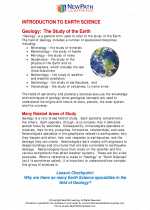 Introduction to earth science
Introduction to earth science  Activity Lesson
Activity Lesson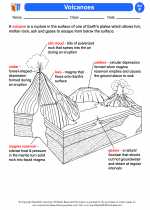 Volcanoes
Volcanoes  Worksheet/Answer key
Worksheet/Answer key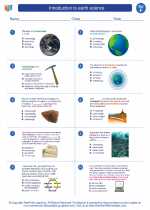 Introduction to earth science
Introduction to earth science  Worksheet/Answer key
Worksheet/Answer key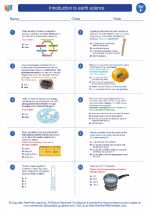 Introduction to earth science
Introduction to earth science  Worksheet/Answer key
Worksheet/Answer key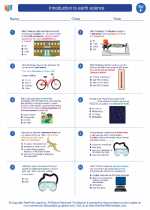 Introduction to earth science
Introduction to earth science  Vocabulary/Answer key
Vocabulary/Answer key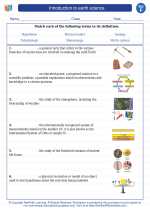 Introduction to earth science
Introduction to earth science  Vocabulary/Answer key
Vocabulary/Answer key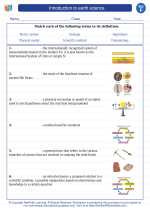 Introduction to earth science
Introduction to earth science 

 Activity Lesson
Activity Lesson
 Worksheet/Answer key
Worksheet/Answer key
 Worksheet/Answer key
Worksheet/Answer key
 Worksheet/Answer key
Worksheet/Answer key
 Vocabulary/Answer key
Vocabulary/Answer key
 Vocabulary/Answer key
Vocabulary/Answer key

The resources above cover the following skills:
EARTH AND SPACE SCIENCE